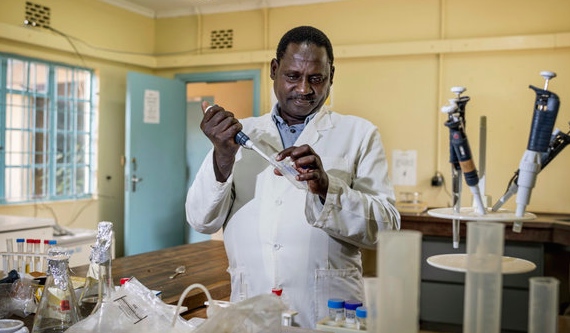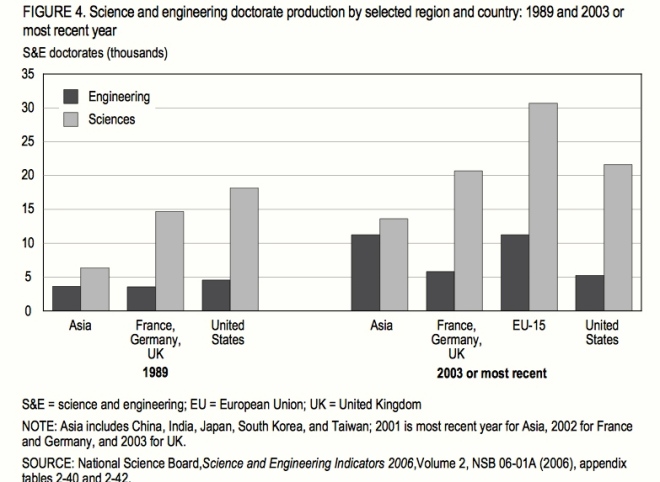
The claim is a bold one. Africa needs science, not aid.
While Africa continues to experience an economic boom, with Nigeria leading as the continent’s largest economy, its growth is based largely on extraction of natural resources by foreign firms rather than boosting industrial productivity. Authors Nkem Khumbah and Melvin Foote make the point that “African economies are still dominated by low-level processing of natural resources and the production of simple consumer goods for local consumption.’ They claim that the only way to take full advantage of this economic boom on the continent is through the mastery of science and technology.
This is not a critique of aid, but an observation that programs implemented through aid money often do not reflect Africa nations’ own priorities toward improving their indigenous science and technology strengths. How about establishing joint programs to empower Africans in STEM to set their own priorities and find innovative ways to solve problems not only on the continent but around the world? How about empowering American scientists and other global scientists to learn from their African colleagues as equal players? Would this not be a win-win situation? The Next Einstein Forum seeks to launch Africa onto the global scientific stage as equal players.
Train more Africans in the fields of STEM and create incentives that will encourage them to lead projects that address the challenges on the continent.
America should embrace this science-led agenda by partnering American universities, research centers, and technological entrepreneurs with African countries to help them increase economic growth and reduce dependency on foreign aid. In turn, this will also help the United States by increasing opportunities to trade and do business in Africa. It’s a win-win situation.
Khumbah, a lecturer and coordinator of the STEM-Africa Initiative at the University of Michigan and Foote, the founder and president of the Constituency for Africa, conclude: “Scientific and technological advancement will help eradicate poverty and promote homegrown economic development by providing Africa with the tools to address its own challenges and expand its industrial productivity. And promoting such advancement is a much more lasting investment that offers surer and higher returns than continuously funneling aid dollars for short-term fixes.”
This perspective finds its roots in the economic development of many Asian countries, shown in this National Science Foundation chart of engineering and science doctorates since 1989. The chart is taken from the NSF report on Asia’s Rising Science and Technology Strength.
The focus on S&T and Research and Development have long been part of the agenda of countries around the world. As a continent with immense talent, African is no different.
Training the next generation of Africans in STEM and equipping innovators with the resources to conduct research and lead innovative projects would enable African nations to continue on the path to fulfilling their true potential.
What are your thoughts on Khumbah and Foote’s article and STEM, R&D and development?

